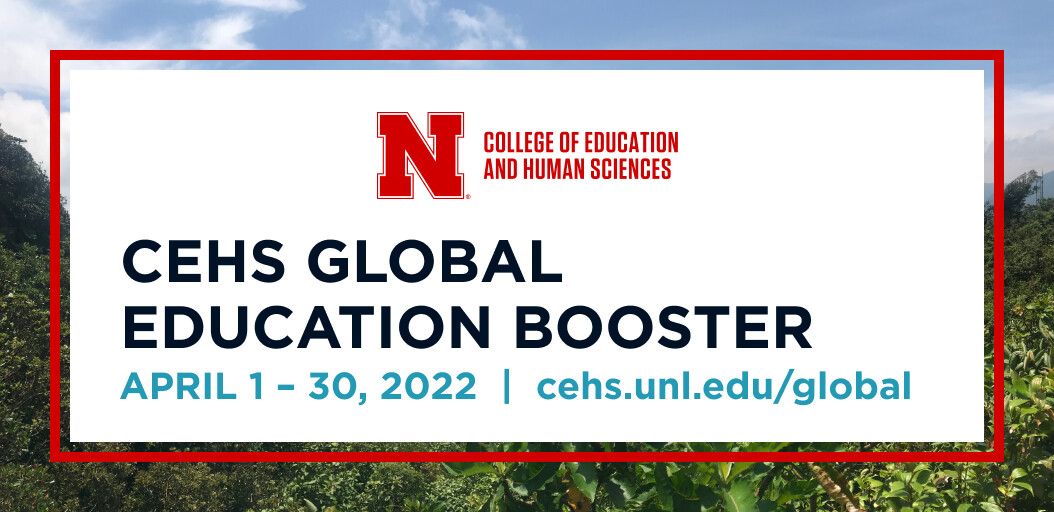
The College of Education and Human Sciences is hosting the Global Education Booster through the entire month of April for a new approach to funding study abroad programming for students. The college is working with the NU Foundation to offer a crowd-funding option and help lower the cost of the three college summer study abroad programs.
The three programs are Zambia, led by Mary Willis, professor in the department of nutrition and health sciences; Costa Rica, led by Sue Kemp, professor of practice, and Kristy Weissling, professor of practice in the department of special education and communication disorders; and Germany led by Mary Alice Casto, assistant professor, and Sandra Starkey, assistant professor in the department of textiles, merchandising and fashion design.
To donate to the booster event, any student, faculty, staff or member of the public can go online and click a button to contribute to the overall sticker price of the study abroad program they want to support. At the end of the month, the college will match what is donated during the fundraising period, dollar-for-dollar, up to $10,000 per program.
“No one at the university has done this before,” said Jim Benes, global exchange coordinator for the college. “It’s exciting to take an approach that our students were already utilizing and transforming it to a community event.”

In prior years, students might have individually created a Go Fund Me page and asked family members and friends to help them out. This time, the college is trying to open that opportunity up to more people by incentivizing donations with match funding. The program costs per program vary, but tend to range from $6,500 to $10,000 for these global educational experiences. The costs include airfare, credit hours for the course, lodging, programmatic fees and many of the meals.
As impactful as these experiences are, the truth is that a lot of students face significant financial hurdles before they can participate on these programs. The Global Education Booster can lower the barriers, making these programs more accessible and available to students. If this pilot project is successful this year, the college may consider opening crowdfunding for all their study abroad offerings in the future.
“The idea is to make this a community effort – to engage people to work together to lower their costs,” Benes said. “Community and fellowship are formed when people work together toward a common goal. Students might have a sale to help raise funds – really the sky is the limit on creative ways to help lower the costs.”
Learn more about supporting the CEHS Global Education Booster.







